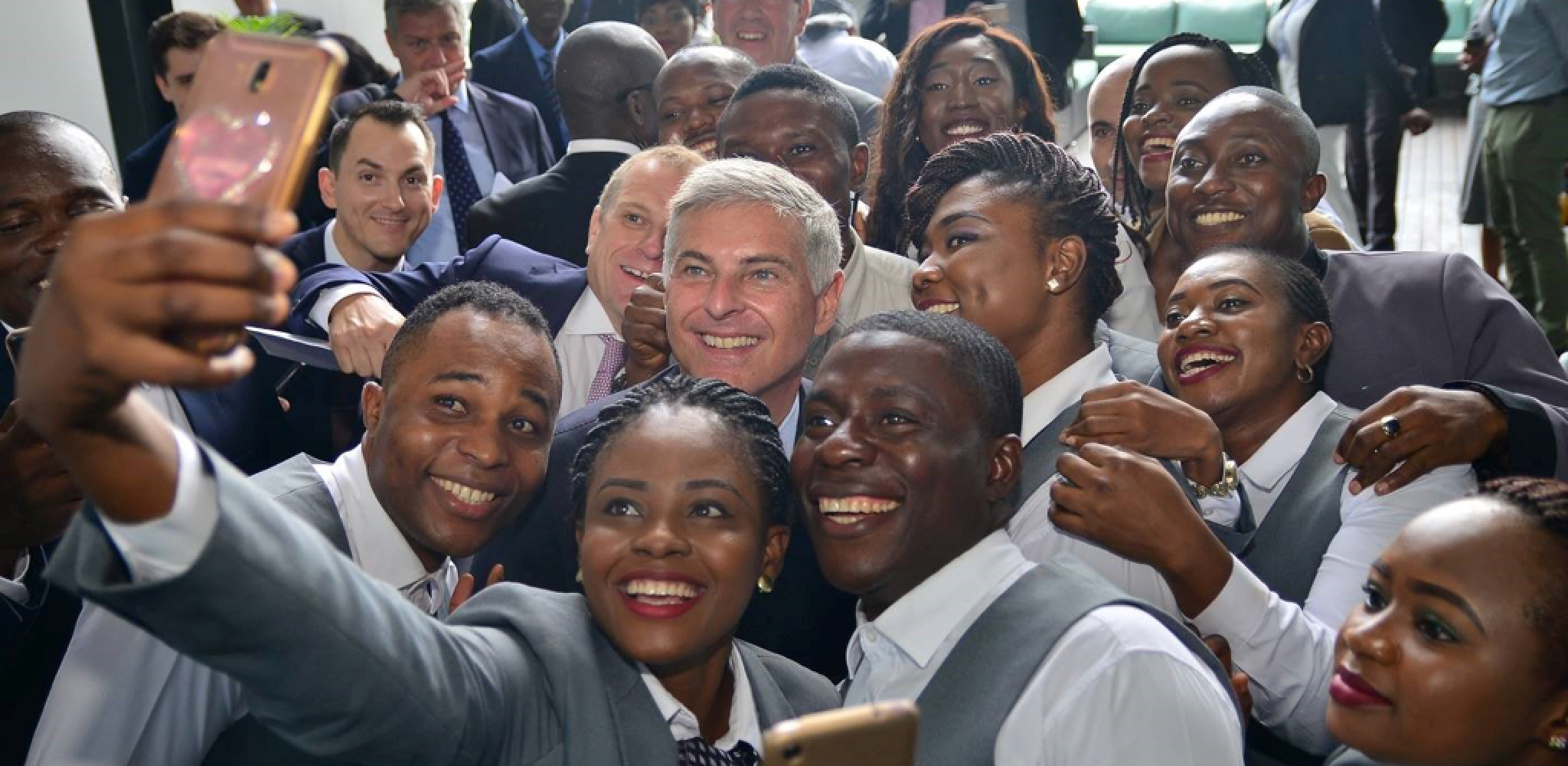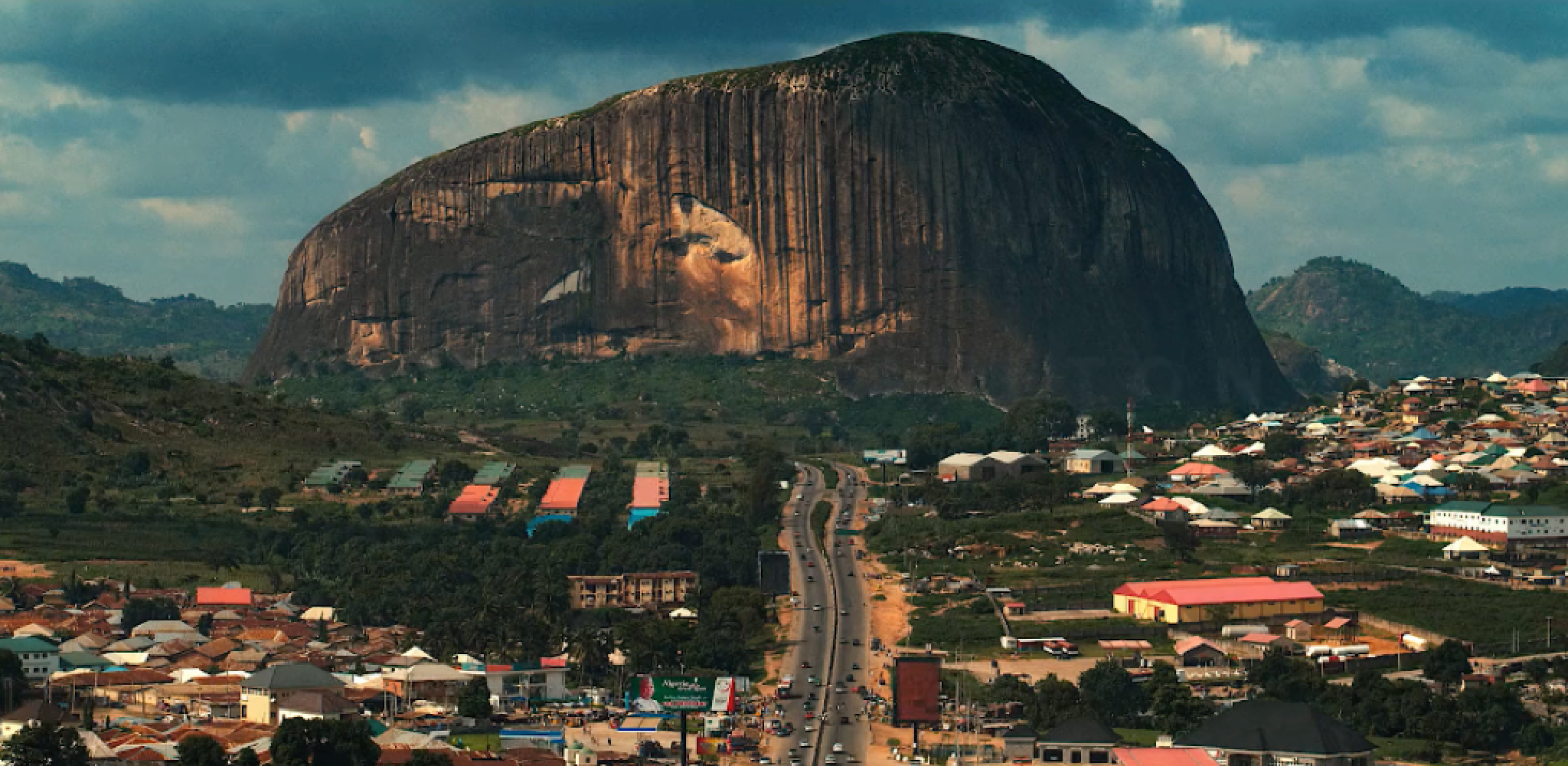This content was produced for Hilton by the foundry @ MEREDITH CORP. FORTUNE editorial staff was not involved in its creation or production.
 X Close
X Close
Hilton invests in africa
in more ways than one
Its Africa Growth Initiative aims to add 100 hotels to its portfolio, and its Big Five project pledges money and action to help the continent’s environment and people.
Since its founding 100 years ago, Hilton has welcomed more than 3 billion guests to its hotels around the globe. Today, increasing numbers of Hilton's guests are heading to its growing collection of properties in Africa—and the company is making new commitments to ensure that tourism and travel there are sustainable, with long-term benefits to the community.
Hilton planted a stake in Africa early on with the opening of Nile Hilton in Cairo in 1959, followed by its first foray into sub-Saharan Africa in 1969 with Hilton Addis Ababa and Hilton Nairobi. It has added to its presence ever since, with hotels operating in 14 African countries, and it plans to more than double the number of properties on the continent, including debuting hotels in more than 10 additional countries.
That kind of growth—in Africa and beyond—would not be possible without Hilton’s unique blend of commitment to its guests, its Team Members, and the communities it serves—an impact called “The Hilton Effect." This term was created by bestselling business author Chip Heath, after he was asked by the company to look at the impact Hilton has had on the world during its first century in business. What he found was that Hilton’s unique approach to the hospitality business has allowed it to consistently deliver innovation and comfort to its guests and deep career satisfaction to its Team Members—while at the same time making a huge difference in improving the well-being of the citizens and communities surrounding its properties.

In Nigeria, it supported the creation of an entire city after the country decided to move its capital from Lagos to Abuja in 1991. Hilton answered the country’s call by building the Transcorp Hilton Abuja in a remote, sparsely populated area, for the purpose of hosting government leaders and dignitaries. Led by Hilton’s pioneering efforts, the new capital city grew up around it.
In recent years, travel to and within Africa has expanded immensely, with developing countries attracting a larger flow of international tourists and emerging economies generating business travel. Arrivals to the continent ballooned by almost 36 million between 2000 and 2017, according to a December 2018 Brookings Institute report on Africa’s tourism potential, with the sub-Saharan region experiencing almost three-quarters of that growth. The United Nations World Tourism Organization (UNWTO) has calculated that Africa posted the biggest jump in arrivals among all world regions in 2017, at 9% growth, and the organization has also estimated that Africa will receive 134 million arrivals by 2030. Regional and local travel markets there are booming as well.
Hilton is greeting the growing surge in tourism by fortifying its presence on the continent. In October 2017, it announced the Hilton Africa Growth Initiative, a five-year, $50 million expansion in the sub-Saharan region slated to add 100 properties—amounting to roughly 20,000 rooms—to the 23 it already operates.
“It’s one of the most exciting things we’ve ever done here—identifying existing hotels that we think could do really well under our brands, whether we manage them ourselves or franchise to owners who want to continue operating them,” says Patrick Fitzgibbon, Hilton’s senior vice president for development in Europe, the Middle East, and Africa. “We’ll convert hotels in city centers, resorts, lodges, and game parks. It enables us to rapidly grow our portfolio and delivers returns for owners through greater business exposure.”
While growth and innovation have been hallmarks of Hilton's first century of hospitality, so too has the company's commitment to the communities it serves.
The first opening under the initiative is the DoubleTree by Hilton Nairobi Hurlingham in Kenya. Other brands will include the flagship Hilton Hotels and Resorts and Hilton Garden Inn. Last year, Hilton introduced Africa to its first Curio Collection by Hilton property, the Legend Hotel Lagos Airport, and it also announced that it was on track to double its African portfolio over the next five years.
While growth and innovation have been hallmarks of Hilton’s first century of hospitality, so too is the company’s commitment to the communities it serves. Last October, it declared it would be placing an additional focus on Africa with an initiative called Hilton’s Big Five, pledging an initial investment of $1 million to drive sustainable travel and tourism in Africa. The program targets five goals, says Chris Nassetta, Hilton’s president and CEO: “Our commitment will allow us to invest in and scale up initiatives that build skills among young people, mitigate risks in human trafficking, engage local entrepreneurs across our supply chain, improve water efficiencies, and promote responsible wildlife-based tourism,” he says.
Hilton’s Big Five is part of the company’s Travel with Purpose 2030 goals, announced last May. That’s when it committed to cutting its environmental footprint in half and doubling its social impact investment worldwide by 2030, in alignment with the United Nation’s 2030 Sustainable Development Agenda. The company has already received commendations from UNWTO for its sustainability efforts and won awards for LightStay, a measurement system that calculates, analyzes and reports the environmental impact at each of Hilton’s more than 5,600 hotels.

Hilton also has a strong record of assisting communities across Africa, completing 460 volunteer projects since 2012. Its Soap4Hope project, in partnership with Diversey, for example, has recycled more than 30 tons of soap for needy populations during the past five years, creating more than 7,000 bars of soap per month.
Now Hilton will be upping the ante. Its Big Five investment will provide funding for youth education and apprenticeship programs, as well as training and auditing to fight human trafficking. It will underwrite assistance to local suppliers in developing and delivering high-quality goods that will be integrated into Hilton’s supply chain. It will also promote responsible tourism that protects wildlife, and expand partnerships that will help the company meet its 2030 goals of reducing its water consumption by 50% and activating 20 water projects in at-risk communities.
“The Big Five speaks very much to our purpose,” said Jan van der Putten, Hilton’s vice president of operations for Africa and Indian Ocean. “We are passionate about serving our guests, looking after our people, and having a wider positive impact as a company. With a focus on these five key pillars, we are in a position to support people and activities across Africa, further contributing to the well-being and sustainability of our communities.”

